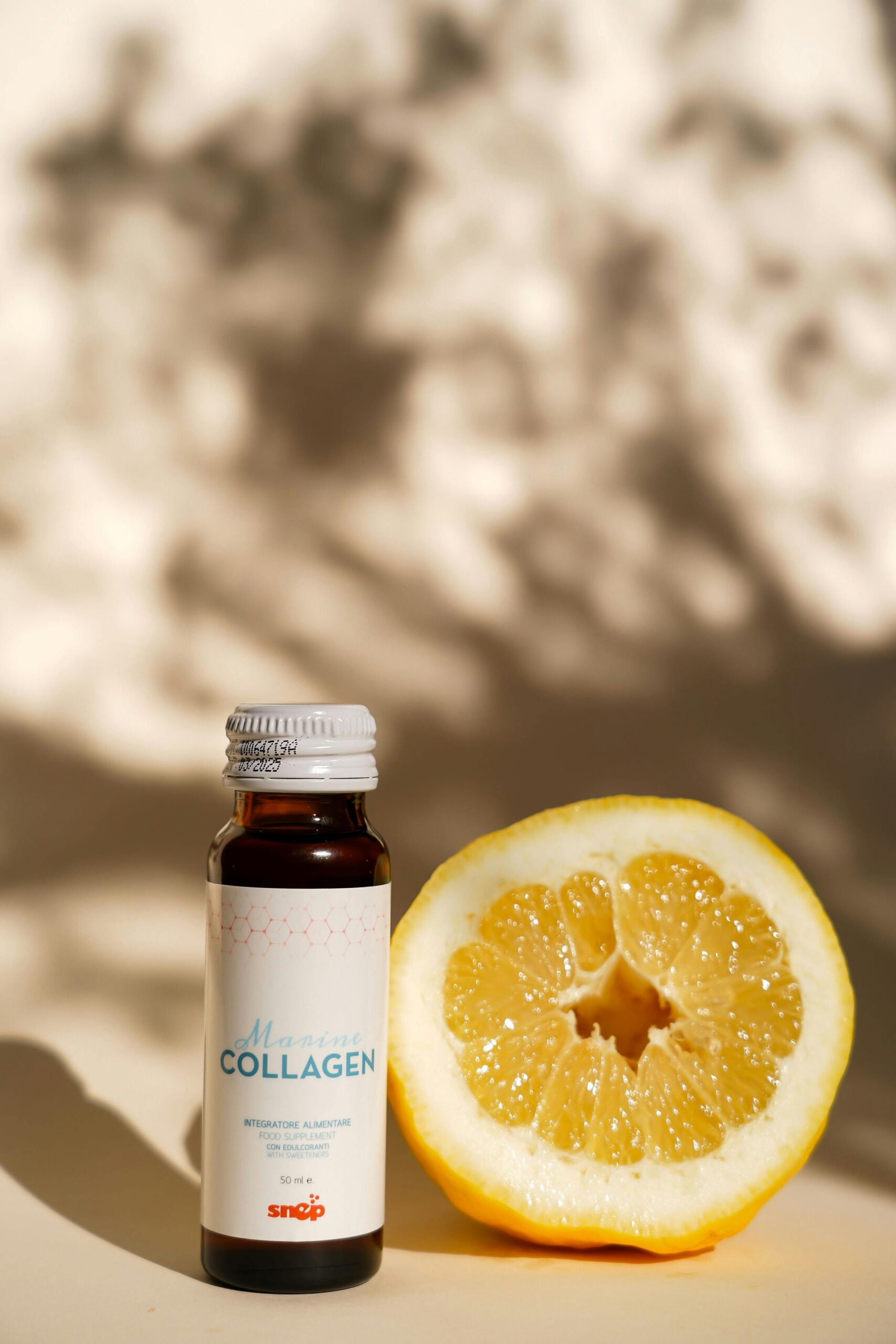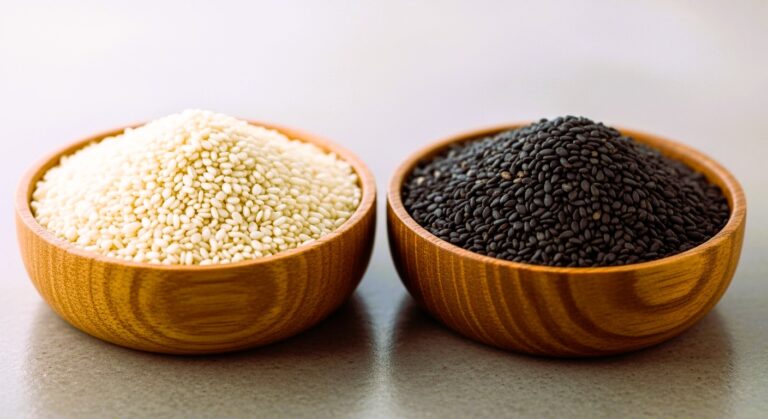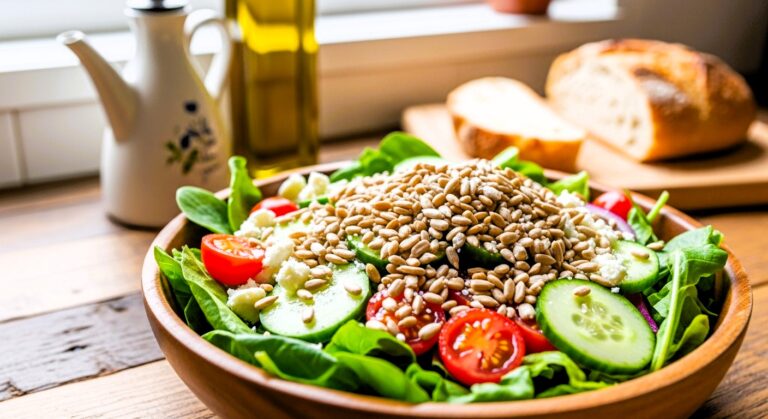Collagen: Boost Your Health and Beauty with Collagen in 2025
Collagen is a type of protein. In fact, it’s the most abundant structural protein in animals. A structural protein is one that makes up the structure or framework of your cells and tissues (1Trusted Source).

1. Is Collagen the Fountain of Youth?
Not quite, but it’s a pretty good start.
It is a vital protein that makes up a significant portion of our body’s connective tissues. It’s responsible for the structure and elasticity of our skin, bones, muscles, and tendons. As we age, our body’s natural collagen production slows down, leading to visible signs of ageing like wrinkles, sagging skin, and joint pain. Collagen is the most abundant protein in the body, and in the skin, it makes up about 70-80% of the dry weight of the dermis, the middle layer of the skin.
2. Why it is so essential for skin health:
- Provides Firmness and Structure: Collagen acts as a structural scaffold in the skin, giving it firmness and strength. It helps keep skin firm and prevents sagging by supporting skin elasticity. This firmness is part of what gives younger skin its smooth, plump appearance.
- Aids in Skin Elasticity and Flexibility: Works together with elastin (another protein in the skin) to keep the skin flexible. This combination allows the skin to stretch and then return to its normal shape. As we age, the skin’s natural collagen levels decline, contributing to fine lines, wrinkles, and sagging.
- Supports Skin Hydration: It helps retain moisture in the skin by supporting the dermal layer, where hyaluronic acid (a substance that attracts and retains water) is also found. Together, they help the skin maintain hydration, which is essential for a youthful glow and resilience.
- Promotes Wound Healing and Skin Renewal; It is crucial in the skin’s repair processes. When the skin is injured or damaged, collagen is part of the natural healing process, helping to rebuild damaged tissues and close wounds. Collagen’s role in cell turnover and renewal also helps keep skin looking fresh and revitalised.
-

Proteins Collagen Peptides Advanced, https://a.co/d/1YeRlab Acts as an Antioxidant: Some forms of collagen, particularly hydrolysed collagen used in skincare and supplements, can have antioxidant properties that help neutralise free radicals. Free radicals contribute to skin ageing, so collagen may help to counteract some of this damage.
3. Factors that Affect Collagen Levels
- Ageing: Natural collagen production declines as we age, often beginning in our mid-20s, leading to signs of ageing like wrinkles and sagging.
- Sun Exposure: UV radiation can break down collagen fibres and damage the skin’s support structure, leading to premature ageing.
- Diet: Diets low in protein, antioxidants, and nutrients (such as vitamin C) can impair collagen production.
- Lifestyle Factors: Smoking and high sugar intake can accelerate collagen breakdown.
4. How to Support Collagen Production for Skin Health
- Diet: Protein-rich foods, along with foods high in vitamin C, zinc, and copper, can support collagen production. Bone broth, fish, egg whites, berries, and leafy greens are good sources.
- Skincare: Topical products containing ingredients like retinoids, vitamin C, and peptides can help stimulate collagen production.
- Collagen Supplements: Hydrolysed collagen supplements have become popular for skin health, as they may help support skin elasticity and hydration from the inside out.
- Sun Protection: Daily use of sunscreen helps protect collagen from UV damage.
In summary, collagen is essential for maintaining the skin’s structure, hydration, and resilience, and supporting natural collagen levels can help keep skin looking youthful and healthy over time.
5. Beyond skincare, collagen offers a range of health benefits that support overall wellness due to its structural and functional role in various body systems.
Some of the main advantages:
- Joint Health and Mobility: Collagen plays a crucial role in maintaining cartilage, the tissue that cushions joints. Cartilage naturally wears down as we age, and collagen production declines, leading to joint pain and stiffness. Collagen supplements have been shown to reduce symptoms of osteoarthritis and improve joint mobility, potentially easing joint discomfort and supporting physical activity.
- Bone Strength: Collagen makes up a significant portion of bone structure, providing it with flexibility and strength. As we age, both bone density and collagen levels decline, contributing to conditions like osteoporosis. Some studies suggest that collagen supplements may help increase bone mineral density, enhancing bone strength and potentially reducing the risk of fractures.
- Muscle Mass and Recovery: Collagen contains the amino acids glycine and proline, which are essential for muscle repair and growth. For those looking to maintain or increase muscle mass, especially as they age, collagen can aid in muscle recovery after exercise. Some research suggests that taking collagen in conjunction with resistance training may help improve muscle mass and strength in older adults.
- Gut Health: Collagen supports the lining of the digestive tract, which is crucial for nutrient absorption and preventing inflammation. It has gained attention as a supplement for people with conditions like leaky gut syndrome or irritable bowel syndrome (IBS). The amino acids in collagen, especially glycine, help repair the gut lining, potentially improving gut health and reducing inflammation.
- Heart Health: Collagen is involved in the structure of arteries, which transport blood throughout the body. A lack of collagen may lead to weakened arteries and increase the risk of cardiovascular issues. Some studies have shown that collagen supplements may help improve arterial flexibility and reduce blood pressure, supporting heart health.
- Hair and Nail Strength: Collagen is a significant component of hair and nails, providing strength and resilience. Collagen supplementation has been associated with reduced brittleness in nails and may promote stronger, healthier hair by providing essential amino acids.
- Support for Tendons and Ligaments: Tendons and ligaments are connective tissues that connect muscles to bones and hold joints together, respectively. Collagen provides them with tensile strength and elasticity. By supporting these tissues, collagen can improve overall flexibility, decrease the risk of injury, and enhance recovery for those who are physically active.
6. Creating collagen-supporting recipes at home with accessible household items and herbs is an economical approach to enhancing natural collagen production. While our bodies cannot synthesise collagen from these ingredients directly, they can provide the necessary building blocks and nutrients to promote collagen synthesis.
Bone Broth
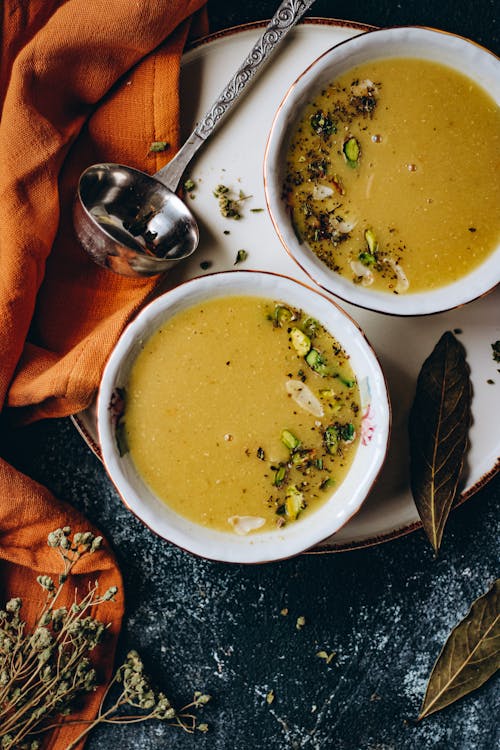
Ingredients: Bones from chicken, beef, or fish; water; apple cider vinegar (optional).
I have been using bone broth for the last five years during cold weather. I usually get the joint bones pieces of beef, which are rich in ligament and most beneficial for my backache and joint system.
Method: Simmer the bones with water and a splash of apple cider vinegar for 12-24 hours. The long cooking time helps extract collagen from the bones and connective tissue into the broth.
Benefits: Bone broth is rich in collagen, amino acids, and minerals. It’s a direct source of gelatin (a cooked form of collagen), which can be easily absorbed by the body to support skin, joint, and bone health.
Gelatin-Rich Desserts
Ingredients: Unflavored gelatin powder, juice (like orange or lemon for vitamin C).
Method: Dissolve the gelatin in hot water or juice and allow it to set. Consuming gelatin provides a direct source of collagen protein.
Benefits: Gelatin contains similar amino acids to collagen and helps support skin elasticity, joint health, and gut health.
Vitamin C-Rich Citrus Water
 Ingredients: Lemon or orange slices, water, honey (optional).
Ingredients: Lemon or orange slices, water, honey (optional).
Method: Squeeze fresh lemon or orange juice into a glass of water and add honey if desired.
Benefits: Vitamin C is essential for collagen synthesis as it helps stabilise collagen molecules. Drinking citrus water regularly provides vitamin C, which boosts the body’s natural collagen production.
Herbal Infusions with Collagen-Boosting Properties
Ingredients: Herbs like horsetail, gotu kola, or nettle; hot water.
Method: Steep a tablespoon of dried herbs in hot water for 5-10 minutes to make tea.
Benefits: These herbs are rich in silica, an important mineral for collagen production. Silica helps strengthen connective tissues, promoting healthier skin, hair, and nails.
7. Horsetail, gotu kola, and nettles are medicinal herbs known for their beneficial properties, especially in supporting skin, hair, and joint health.
Here’s a closer look at each:
- Horsetail (Equisetum arvense)
Overview: Horsetail is a plant with a long history in herbal medicine, mainly used for its high silica content. Silica is a trace mineral that is essential for collagen synthesis and supports the structural integrity of skin, hair, and nails.
Nutritional Components:
- Silica: Horsetail is one of the richest natural sources of silica, which strengthens the skin’s connective tissues and enhances elasticity.
- Antioxidants: contain flavonoids and phenolic compounds that protect skin cells from oxidative stress, which can accelerate ageing.
- Calcium and Magnesium: Important minerals for bone and joint health.
- Other Nutrients: Horsetail also contains potassium and small amounts of vitamin C, both of which support overall skin and joint health.
- Horsetail Tea or Capsules: Horsetail can be consumed as a tea or in capsule form. The tea has a mild, grassy flavour, making it easy to incorporate into daily routines.
Benefits: Regular use of horsetail may help increase collagen production, strengthen hair, reduce brittle nails, and improve skin elasticity. Silica also has anti-inflammatory properties, which are beneficial for joint and skin conditions like arthritis and acne.
Gotu Kola (Centella asiatica)
Overview: Gotu kola is a staple in Ayurvedic and traditional Chinese medicine. It’s known for its ability to enhance wound healing, promote collagen synthesis, and improve circulation. Gotu kola is widely used in skin-care products and supplements for anti-ageing and skin repair.
Nutritional Components:
- Triterpenoids (Asiaticoside and Madecassoside): These active compounds have been shown to stimulate collagen synthesis and improve skin elasticity, making gotu kola effective in treating wounds and reducing the appearance of scars.
- Antioxidants: High in flavonoids, which help protect the skin from environmental damage and oxidative stress.
- Vitamin C: Supports natural collagen production and acts as an antioxidant, further protecting skin and connective tissues.
- Gotu Kola Extract or Topical Products: Gotu kola is available as a supplement, extract, or skin-care product for topical application. The extract can be added to teas, smoothies, or water.
- Benefits: Gotu kola enhances skin firmness, reduces wrinkles, and can improve the skin’s texture. Its anti-inflammatory and circulatory properties support joint health and may help reduce the appearance of varicose veins and stretch marks. Additionally, it promotes faster wound healing and skin cell repair.
Nettles (Urtica dioica)
Overview: Nettle is a nutrient-dense herb with a long history of medicinal use. Rich in vitamins and minerals, it supports overall health, including skin, hair, bones, and joints.
Nutritional Components:
- Silica and Sulfur: Both minerals contribute to collagen synthesis and help improve skin elasticity and strength.
- Iron: Nettles are a good source of iron, which is essential for healthy circulation and oxygen delivery to the skin, promoting a healthy complexion.
- Vitamins A, C, and K: These vitamins contribute to skin repair and collagen synthesis and protect against environmental damage.
- Antioxidants: contain flavonoids, carotenoids, and polyphenols that protect skin cells from damage and support cell regeneration.
- Chlorophyll: Known for its detoxifying and anti-inflammatory properties, chlorophyll supports clear skin and may reduce acne.
- Nettle Tea or Infusion: Nettles can be steeped as tea or used in culinary dishes like soups. Nettle tea has an earthy taste and can be combined with honey for added flavour.
Benefits: Nettles support collagen production, improves skin clarity, and strengthens hair. Due to its high vitamin and mineral content, nettles also help reduce inflammation and relieve conditions like eczema or joint pain. They are often consumed as tea or in supplement form to nourish skin, hair, and overall health.
These herbs, when incorporated into daily routines, can support natural collagen production and enhance the skin’s resilience and elasticity. They also provide additional anti-inflammatory and antioxidant effects, making them beneficial for overall skin and connective tissue health.
Protein-Rich Smoothies
- Ingredients: Greek yoghurt, almond butter, berries (like strawberries or blueberries), and leafy greens.
- Method: Blend ingredients into a smoothie. The yoghurt and almond butter provide protein, which includes the amino acids glycine and proline necessary for collagen production.
- Benefits: The amino acids in protein-rich foods are collagen precursors, and berries add antioxidants, protecting collagen from breakdown.
Aloe Vera Juice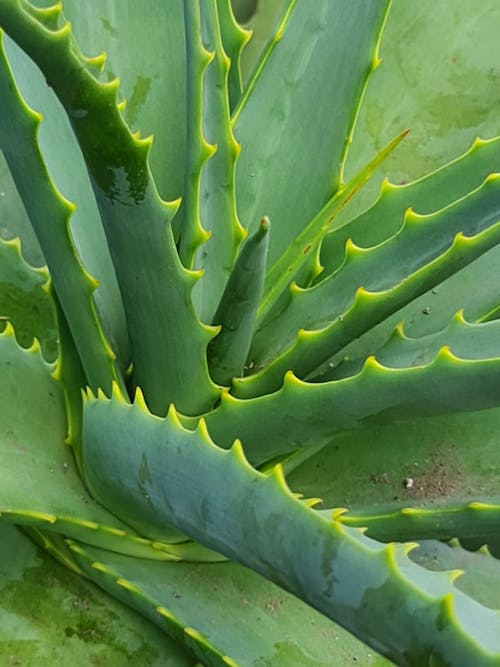
- Ingredients: Aloe vera gel (from fresh aloe vera leaf), water, and a splash of lemon juice.
- Method: Blend the inner gel of the aloe vera leaf with water and lemon juice. Consume this mixture daily.
- Benefits: Aloe vera contains plant-based compounds that may stimulate fibroblasts, which are cells responsible for producing collagen in the skin.
Ginger and Turmeric Tea
- Ingredients: Fresh ginger and turmeric roots or powders, hot water, and honey (optional).
- Method: Steep ginger and turmeric in hot water to make a tea. Honey can be added for sweetness.
- Benefits: Ginger and turmeric contain anti-inflammatory properties that help protect collagen in the skin, joints, and connective tissues.
8. Certain foods, especially those rich in amino acids, vitamins, and minerals, are beneficial for promoting collagen synthesis in the body. Including these foods in your diet can help maintain skin elasticity, support joint health, and promote overall tissue repair. Here’s a list of foods, including fruits, that are known to support collagen production:
Fruits Rich in Vitamin C
- Citrus Fruits: Oranges, lemons, limes, and grapefruits are packed with vitamin C, an essential nutrient for collagen synthesis. Vitamin C stabilises collagen molecules and helps them form a strong, stable structure.
- Berries: Strawberries, blueberries, raspberries, and blackberries are high in vitamin C and antioxidants, which help protect the skin and collagen from free radical damage.
 Kiwi: This fruit is exceptionally high in vitamin C and also contains other antioxidants that promote skin health and repair.
Kiwi: This fruit is exceptionally high in vitamin C and also contains other antioxidants that promote skin health and repair. - Mango and Pineapple: These tropical fruits contain vitamin C and enzymes that support skin renewal and repair.
Protein-Rich Foods
- Egg Whites: Egg whites are rich in proline, an amino acid that is crucial for collagen production. They also provide glycine, another key amino acid in collagen.
- Chicken: Chicken contains connective tissues that are naturally high in collagen. Chicken is often used to make bone broth, which can be rich in collagen and amino acids.
- Fish and Shellfish: Fish (particularly with skin) and shellfish contain collagen and essential amino acids that support skin and joint health. Marine collagen is particularly absorbable and is often used in supplements.
- Bone Broth: Made by simmering bones (often from chicken, beef, or fish) for several hours, bone broth is a direct source of collagen and other amino acids like glycine and proline that help support skin elasticity.
Nuts and Seeds
- Pumpkin Seeds, Chia Seeds, and Flaxseeds: These seeds contain zinc, which is necessary for collagen production and repair. Chia and flaxseeds are also high in omega-3 fatty acids, which help maintain skin hydration and elasticity.
- Almonds and Cashews: Both contain copper, an essential mineral that helps activate enzymes involved in collagen formation. Cashews also provide some protein, which supports collagen synthesis.
Conclusion:
Including a variety of these foods in your diet can enhance the body’s natural collagen production and help protect collagen from breaking down. Combining protein-rich foods with fruits and vegetables high in vitamin C, antioxidants, and essential minerals like zinc and copper can give your body the resources it needs to maintain healthy skin, joints, and connective tissues.
References:
- Shuster, S., & Davidson, J. (2020). Nutrition and Collagen Synthesis: An Overview of Essential Nutrients for Skin Health. Journal of Dermatology and Nutritional Science, 8(2), 31-42.
- Murray, M. (2019). The Collagen Connection: How Food and Nutrition Affect Collagen Production. Healthline Publications.
- Zhang, Z., & Jiang, C. (2020). Natural Methods for Enhancing Collagen Production: A Guide to Home-Based Practices. Journal of Natural Nutritional Sciences, 6(3), 45-59.
- Kumar, N. B., & Krishnan, S. (2021). The Role of Collagen in Joint, Skin, and Bone Health: A Review. Journal of Advanced Nutrition and Human Metabolism, 3(2), 24-37.
- Roussel, A. M., & Fulgencio, J. (2019). Collagen Supplements in Clinical Practice: Joint, Bone, and Skin Health. Journal of Ageing and Functional Health, 12(1), 15-23.
- Singh, S., & Usha, K. (2022). Silica-Rich Plants and Their Role in Health: Horsetail, Gotu Kola, and Nettles. Journal of Herbal and Medicinal Plant Research, 14(1), 58-72.
- Balch, P. A. (2020). Prescription for Nutritional Healing: The Healing Properties of Herbs. Avery Publishing Group.
Disclaimer: The contents of this article are intended to raise awareness about common health issues and should not be viewed as sound medical advice for your specific condition. You should always consult with a licensed medical practitioner before following any suggestions outlined in this article or adopting any treatment protocol based on the article’s contents.
Top 15 High Protein Vegan Recipes: No More Eating a Chicken a Day
